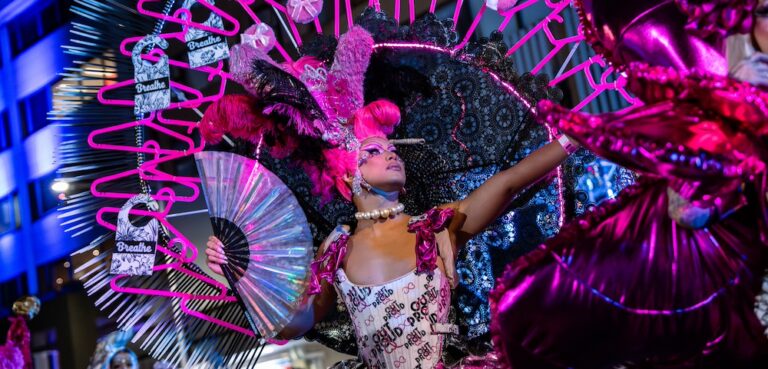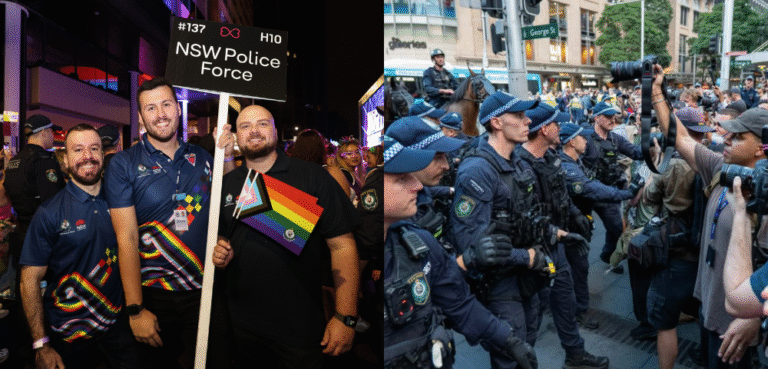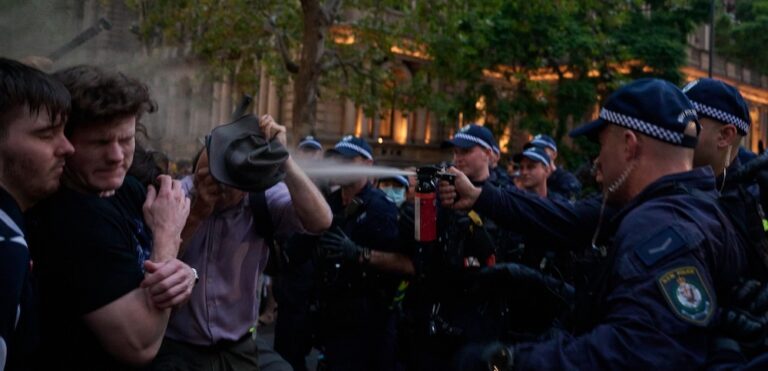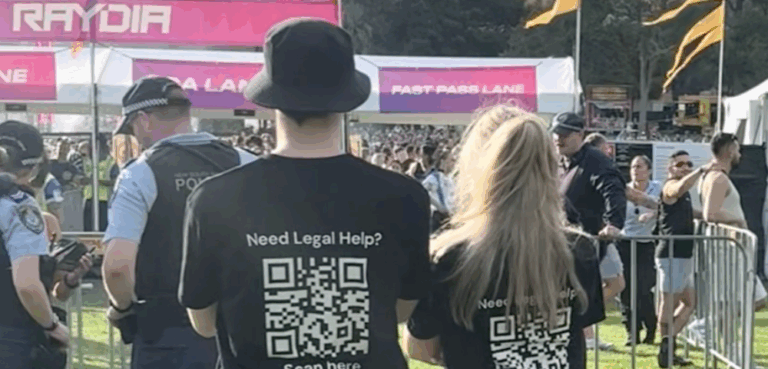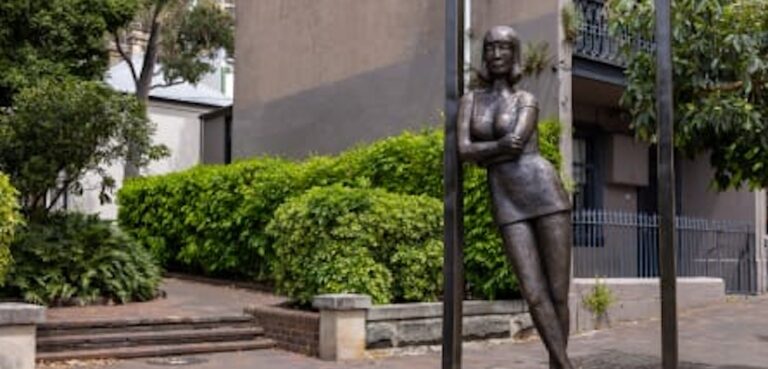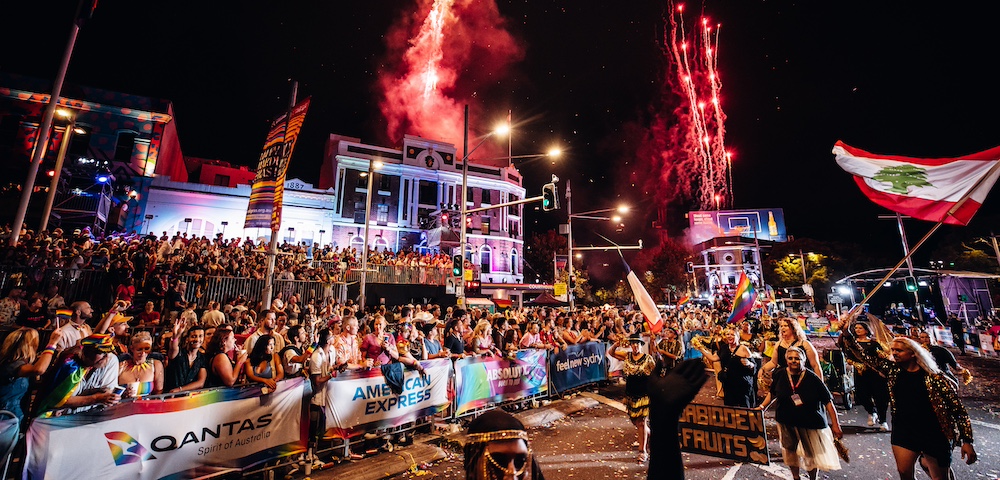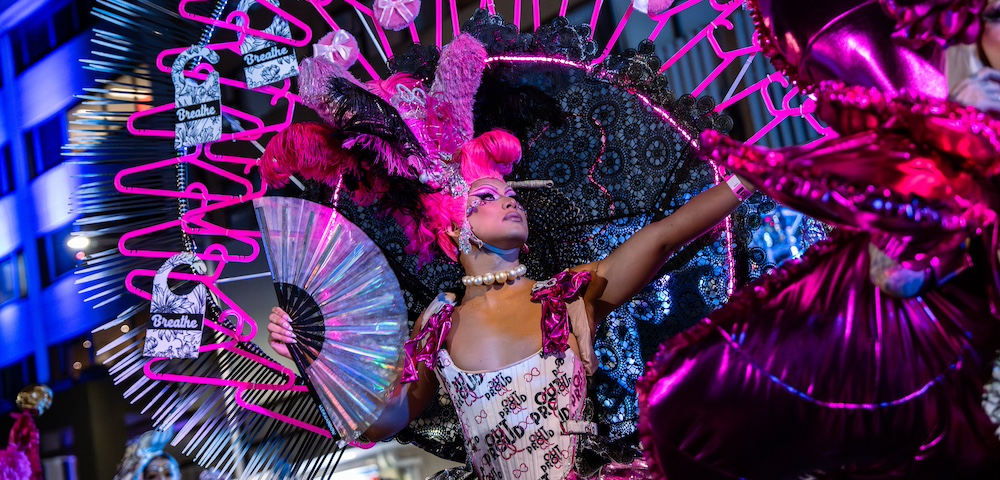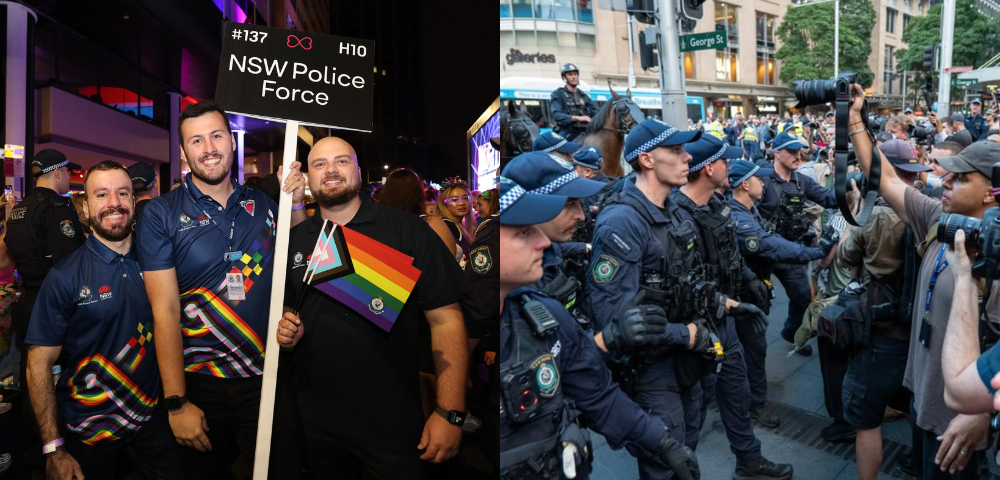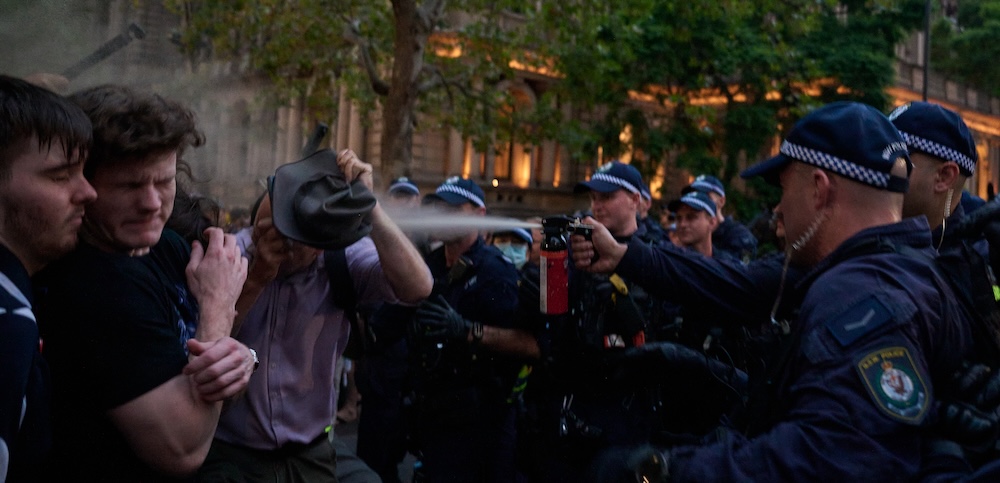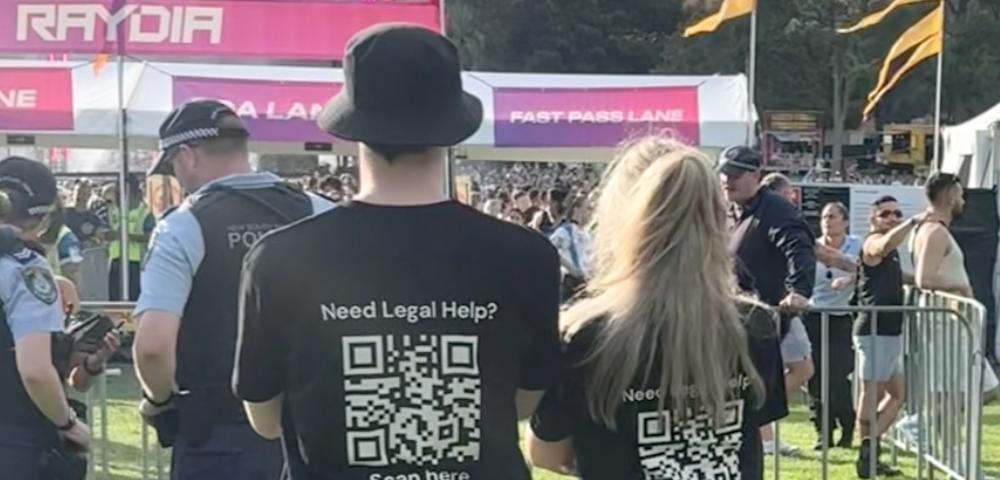
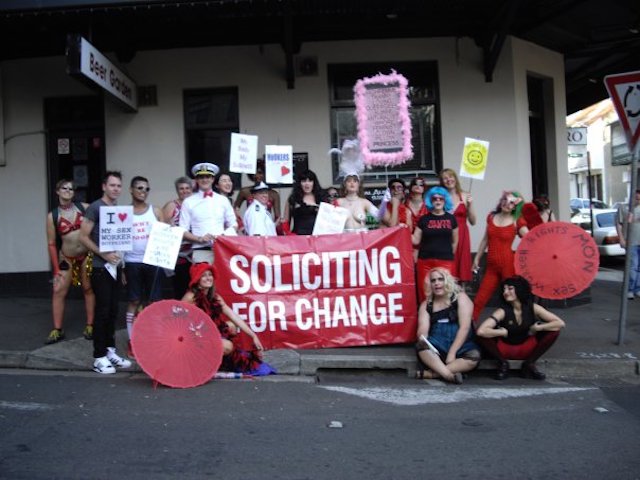
Barbarella Karpinski
In the 2020 Mardi Gras Parade, queer sex workers celebrated with the awesome Queer Sex Worker float – “Soliciting for Change”. But things have not always been so fabulous. Back in 2012 Queer Sex workers were not queer enough. Cameron Cox, CEO of SWOP, and out and proud queer sex worker, remembers:
“Sex workers were not rejected from the parade entirely. We were told that we could enter to march as community allies only. Sex workers found this unacceptable and insulting. We have fought for LGBTIQ rights and at times led the struggle.”
Sex workers, especially gender diverse sex workers, have always been at the forefront of LGBTIQ rights – look at the Compton’s Cafeteria and Stonewall riots in the 1960s USA. Prior to the 1995 Wood Royal Commission and the decriminalisation of sex work in NSW, corrupt homophobic and whorephobic police bashed gays and took “protection” payments from sex workers.
As a 78er and former erotic dancer and writer of a yet unpublished novel on queer sex work, Queer Beautiful Tainted Mess, I wanted to show my support for queer sex workers. But it would just make my life easier if sex workers kicked earlier as they were at the tail end of the parade. Sex Workers should be up the front because they were there at the beginning. And I could get to bed earlier.
So why it is that queer sex workers were relegated to second class status in a community parade in 2012? Cox adds insight:
“There are many LGBTQ sex workers. The media, literature and arts all see us either as drug fucked hooker leaning on lamppost or hooker with a heart of gold who will probably die before the end of the final act. We maybe your brother, your sister, your glamorous aunt.”
Scratch the veneer of queer suburbia and you’ll find adult entertainment, dykes celebrating “Happy Seventy” at lap-dance-stripper bars and differently abled queers booking disability-skilled pleasure workers.
Let’s put the pre-marriage equality paranoia about hookers behind us when those perceived tawdry and with a less than salubrious public image, were thrown under the bus in favour of political expediency. In 2020, let’s celebrate equality and inclusion.
Says Cox: “It is important that sex workers march in Mardi Gas for the same reasons that it is important that we have Mardi Gras. For me, who grew up in a conservative rural area, it is important because it shows that we do exist.
“Many LGBTIQ youth and especially trans youth find getting employment difficult and turn to opportunistic sex work to survive. This is especially true of youth made homeless by homophobic families. They need to know that there is somewhere that their existence is seen as valid and that there are organizations that will support them as they are.”
Cox recalled that night in 1978:
“I was working on the Wall that night and I remember vividly a very tall trans worker running past shouting “Quick, up the Cross they are bashing the poofs”. I also remember getting there and not knowing exactly what to do in the melee. So we obstructed and yelled at police as much as possible whilst avoiding their clutches.”
I recall in 1978, when I was arrested for protesting the injustices, that bisexual, gay, lesbian and trans sex workers were there, standing and falling with us, and were bashed and harassed by police, despite the exchange of ‘protection’ dollars. I reckon they should be marching before corporate pride – Airbnb, beer and banks.
Peter Murphy was there too:
“Of course queer sex workers should be a proud part of the Mardi Gras parade given their long history or being ‘out’ well before we were urging people to come out of the closet and into the street. The Parade should be our community, not a parade of big businesses, and our community is about love in diversity, equality in diversity.”
